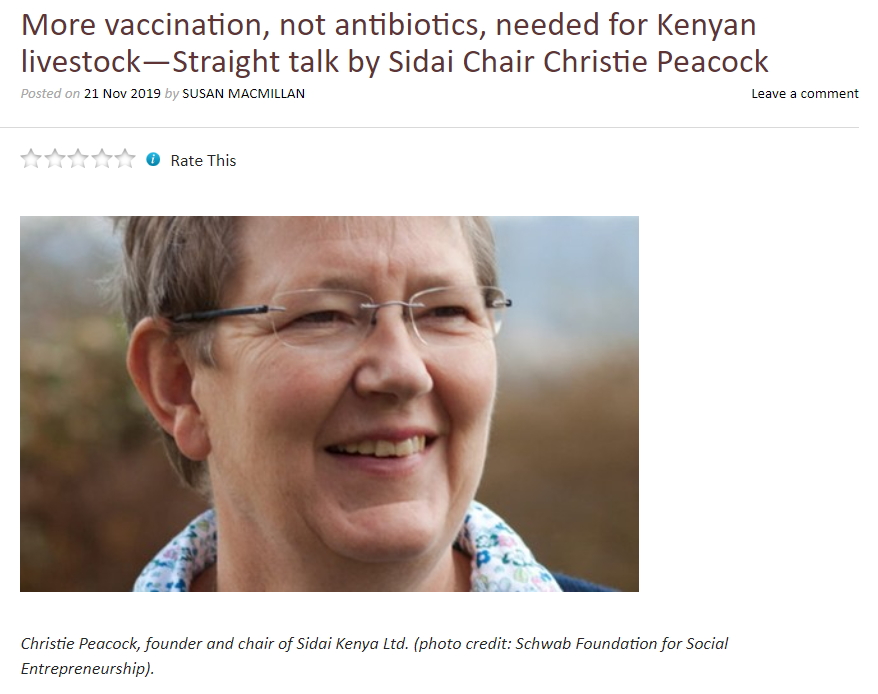
The following interview of Christie Peacock was conducted at the February 2019 launch of the CGIAR Antimicrobial Resistance Hub, which is integrating research and development efforts in tackling antimicrobial resistance and is located at the Kenya-headquartered International Livestock Research Institute (ILRI), which hosts the hub. The interview has been lightly edited for the sake of brevity and clarity.
Christie Peacock is the founder and chair of Sidai Africa, Ltd., a Kenyan company that provides livestock services and crop inputs to farmers across the whole of Kenya. Started seven years ago, this social enterprise now reaches about 300,000 farmers on a regular basis, providing them with high-quality services, training and products.
What antimicrobial resistance challenges does your company face?
Across the board, the antimicrobial challenges we face are huge issues. We assessed the quality of some antibiotics on the market in Kenya and found that at least 30% were substandard and under-strength. Another issue is the distribution network, which involves a lot of unqualified people and means that farmers can get hold of antibiotic/antimicrobial drugs easily and often. Without knowing how to use the drugs properly, many underdose their animals or don’t treat the animals for the period of time required for the drug to work. Members of some communities will jab a sick animal with a bit of antibiotic and if the next day it hasn’t got better, they’ll jab it with something else. This means that these livestock owners are not giving drugs the time to work. In fact, there’s a kind of ‘arms race’ of injectable drugs that are being used on animals, which ultimately often die with a cocktail of pharmaceutical products in their systems. So misunderstandings and misuse of antibiotics and other antimicrobial drugs are huge problems for animals here as well as for human health and nutrition.
What issues does your company face in selling livestock services and products?
We work hard to convince livestock farmers and herders to use the right product for the right ailment, to use the product correctly and then to wait to see the results of that treatment. We conduct and support a lot of training. We support lead farmers, for example, who demonstrate good practice that can be witnessed by their friends and neighbours. Even many professionals in Kenya fail to use veterinary products correctly. These animal health workers may have no diagnostic tools at their disposal; some won’t even have a thermometer or a stethoscope let alone a diagnostic test that they can apply or a laboratory where they can send their samples. So a lot of their diagnostic work is just educated guesswork. In these circumstances, what many professionals will try to do is to cover all bases by administering a cocktail of drugs in the hope that one of them will work. There’s also a commercial driver behind these treatments because professionals can make a lot of money selling injectable products and injecting animals during a farm visit. The profit margins on using those products are 30–50%, so the health workers can make good money selling injections when the cow or other animal they have been called to treat may not need that treatment.....Read More....
